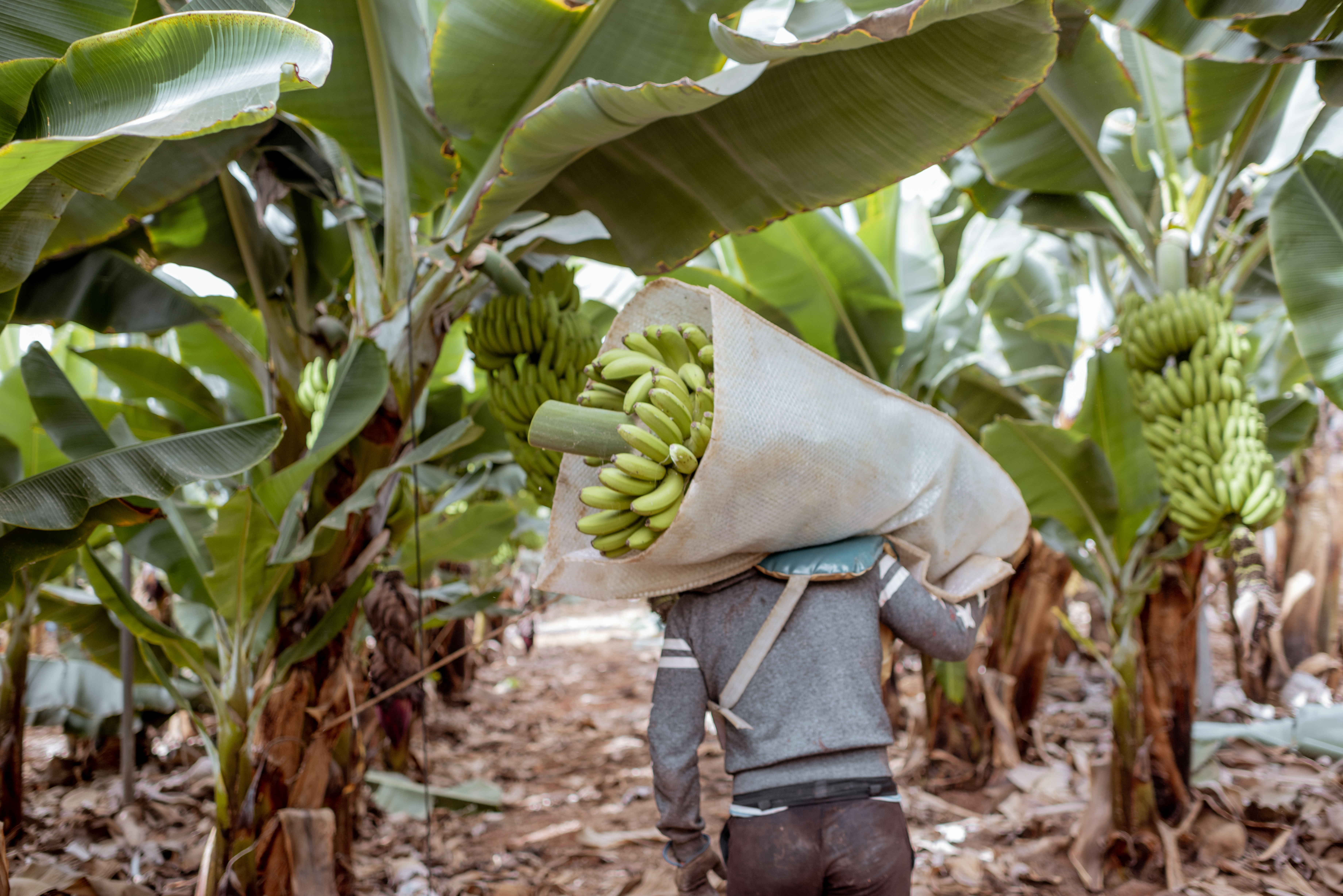
Last Saturday (11 May) marked World Fair Trade Day, when organisations including the Fairtrade Foundation highlight the difficulties facing small-scale farmers, producers and workers, particularly in the Global South.
For this year’s event, the Fairtrade Foundation launched a campaign on the powerlessness of farmers in global supply chains, and we spoke to the Foundation’s senior campaigning manager, Stefan Donnelly, to get a better understanding of how small producers are impacted by trade.
Addressing imbalances
Donnelly describes World Fair Trade Day as an opportunity to imagine “a different, fairer future for trade”. The new ‘Make Your Mark’ campaign draws attention to the “unstable, unpredictable pricing” that impacts those at the start of supply chains, he adds.
“There are unbalanced power structures in trade, increasingly [as a result of] climate change, which is highlighted in a lot of the farmers’ stories that we’re sharing as part of that campaign.”
The knowledge behind the campaign comes from work with Fairtrade producer networks across the Asian Pacific, Latin American and African regions. Its message, Donnelly says, is that, “if given a fairer price for their work – and a seat at the table – [they] are perfectly-placed to help build a fairer, more sustainable food trade system”.
That’s because they have first-hand knowledge of how things work in their own communities, as well as how their communities are impacted by trade. Farmers have done “excellent work” by putting extra income and power to use, investing in education, women’s rights or expanding their businesses – which also helps them adapt to the new conditions wrought by climate change. Donnelly says these advantages can be expanded by putting “these people that are too often forgotten in supply chains at the centre of our discussions”.
Trade tensions
Quizzed on the unique challenges facing producers early in the supply chain for commodities like coffee or cotton, Donnelly notes that legislation introduced in wealthier countries like the UK can have unexpected effects in the Global South.
“There’s increasingly and understandably a lot of sustainability legislation and initiatives, but there’s some concern amongst producers that the burden of complying with these is being placed upon them rather than the wealthier countries that are demanding, for example, deforestation regulation.”
There is a risk, he suggests, that “if not done correctly”, these demands could negatively impact producers in much poorer nations.
Done more sensitively, Donnelly says that this legislation “could be a real asset”, but that it requires investment “in expertise and in producers who are doing this de-deforestation work already”. Currently, however, there is a power imbalance where producers are not necessarily involved in decisions.
Climate considerations
The effects of climate change disproportionately affect producers in regions where the Fairtrade Foundation works, “partly because of geography, but also partly because of low prices and therefore low incomes”.
“If you aren’t earning enough to ensure your kids are at school or you can get good medical treatment, you’re definitely not earning enough to adapt your farm to the effects of climate change, to recover after more frequent droughts, hurricanes or extreme weather events.
Donnelly highlights “outstanding commitments” on climate adaptation finance from investors in the Global North, including the UK and EU governments.
“Those haven’t been delivered in the timescales that have been promised, for example at COP26 five years ago. What we’re calling for is that the burden of compliance with this isn’t placed on farmers.”
To individual importers and exporters, he advises investment “in the local knowledge and expertise of your producers”.
“Fairtrade [shows], over the past 30 years, that that’s the best way to have a sustainable future for your business and your industry.”



